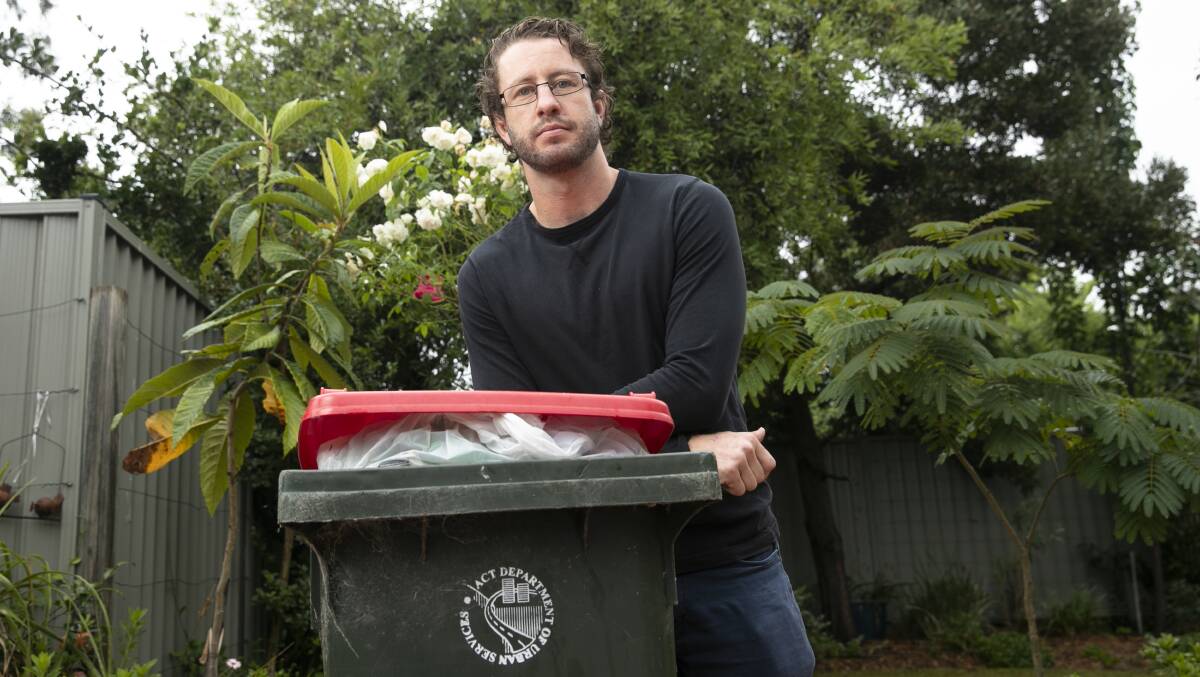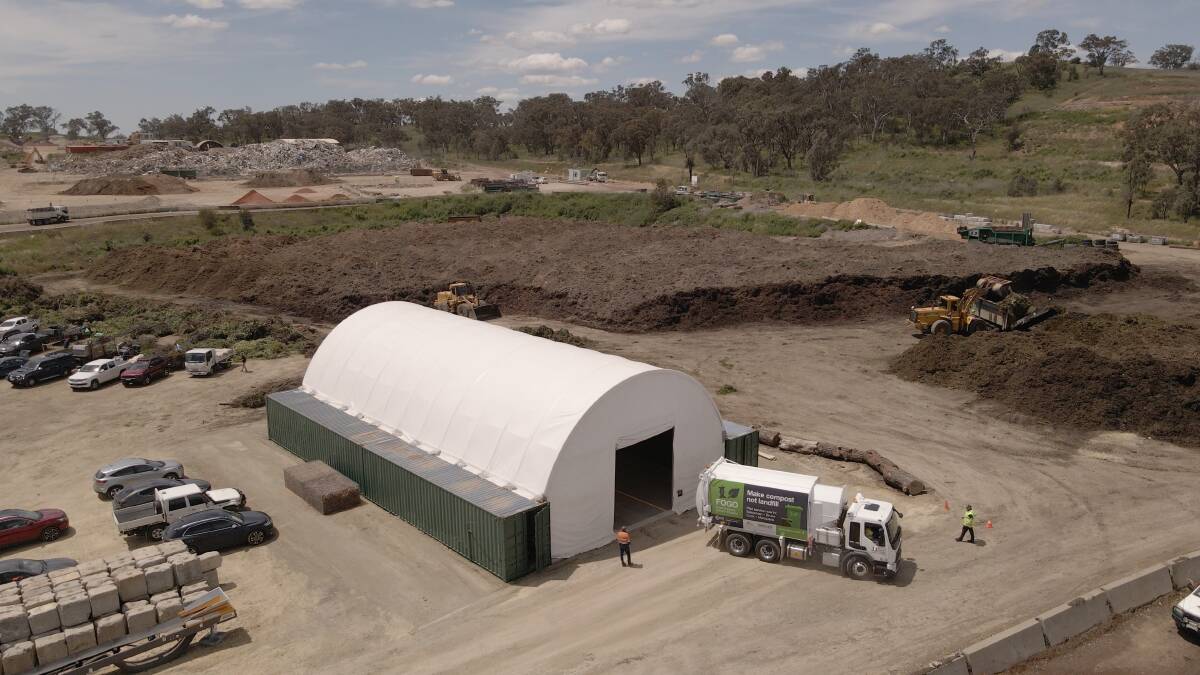
A decision to halve garbage pick-ups in Canberra's food waste trial suburbs is being met with resistance, with some families relying on relatives to dispose of excess rubbish.
The 5000 households participating in the Food Organics and Garden Organics trial had their garbage collection switched from weekly to fortnightly, with recycling and organic waste collected weekly.
Macquarie resident Luke Wrigley said he and several neighbours were unaware of the change until they found their bins still full after the regular collection night.
Mr Wrigley said his four-person household didn't produce an excessive amount of waste, yet their bin was overflowing before each collection.
With his rates increasing from $3292 in 2018 to $4282 in 2021, Mr Wrigley said the trial should have been rolled out without any reduction to services.
"My family and I try to lead a sustainable, environmentally-friendly lifestyle," he said.
"We recycle, we compost, we garden and we take care of the community and the environment around us.
"Even if I support the premise of the trial, perhaps they could've offered us an opportunity to buy in and pay for the additional service."
MORE ENVIRONMENT NEWS:
- Push on to grow local food systems in Canberra
- Rapid response team to fight invasive species in ACT
-
Free rapid tests come at cost to the environment
While a date has yet to be set for the full ACT rollout, all states and territories will deliver the service to households as part of a 2019 national waste policy agreement.
Since the commitment, food scrap programs have been introduced to 30 per cent of Australian households in the hope of halving organic waste sent to landfill by 2030.
In the ACT, the program's delivery depends on the development of a new organic waste processing facility. Suitability of a site in Hume approximately 8km from the airport was currently being assessed.
ACT NoWaste group manager Bruce Fitzgerald said whether the site could process the volume of material required was currently being established.
"To date the engagement has gone very well. We'll see that ramp up in the coming months as we actually start to release some of the studies supporting the EIS (environmental impact statement) for broader consultation," he said.

The reduction of food waste is a key component of the ACT's emissions reduction strategy, with Canberrans thought to produce more waste per household than the national average.
Food scraps reportedly make up 37 per cent of household waste in the ACT, and 65,000 tonnes of organic waste is sent to landfill in Canberra each year.
Mr Fitzgerald said the territory's overall waste recovery rate had been consistently above 70 per cent for a number of years, behind only South Australia.
He said the uptake of the food scraps trial in multi-unit properties had exceeded expectations.
"There is a huge demand for the service, so I'm very pleased with that. Likewise, we've received feedback, both good and bad," he said.
ACT City Services Minister Chris Steel said the trial had achieved a contamination rate of less than 0.1 per cent to date, boding well for the wider rollout.
He said City Services were working with stakeholders like Carers ACT to gauge how their members had been finding the trial ahead of its territory-wide introduction.
There were currently no plans to bring back weekly landfill bin collection, but the response to its reduction was actively monitored, a spokesperson said.
"There will be a period of adjustment," Mr Steel said.
"We know that households are still getting used to this and this is obviously something that we are looking very closely at."
For now, the government will increase the size of landfill bins or provide a second one for an annual fee, working off the theory a fortnightly garbage collection was sufficient when food waste was diverted into the food scrap bin.
Mr Wrigley said that wasn't the lived experience of his family and it wasn't that of his neighbours disposing of nappies and those who were carers.
"It's a little embarrassing, but we've taken our rubbish to family and friends in suburbs who have weekly rubbish collection," he said.
"Other times, I've had five or six bags of rubbish stacked up, sitting outside. That's a problem in itself managing that with the possums and the birds."
He said a neighbour living alone had even offered to take some of his garbage.
"While that's a nice sentiment, I don't think it's a sustainable solution to this," he said.
"At some point FOGO rolls out across Canberra and the friends and family we lean on to top up their bins will have their services halved, too," he said.
"The problem will perpetuate and we'll either all be driving our rubbish to the tip, or scratching our heads trying to figure it out."







